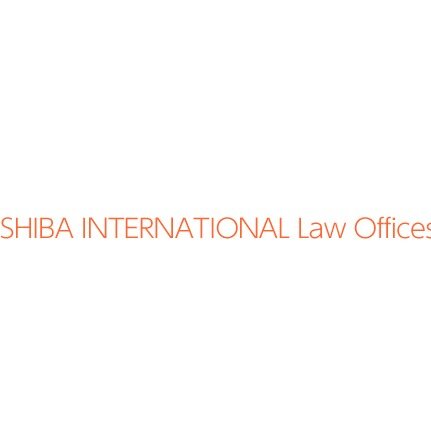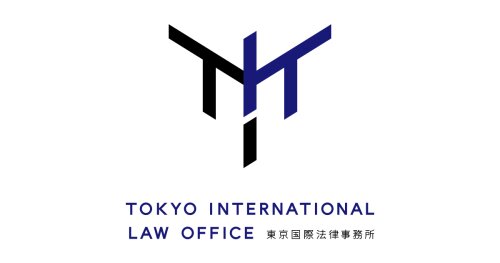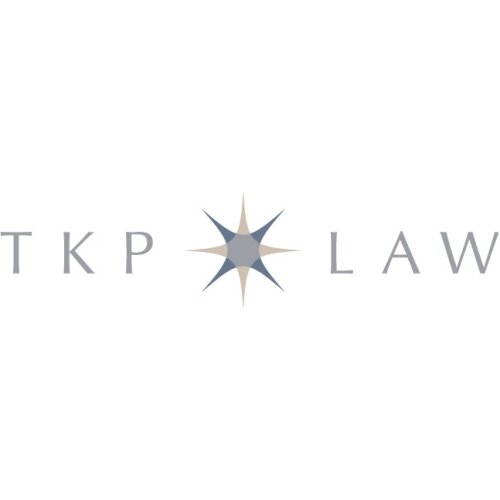Best Energy, Environment & ESG Lawyers in Tokyo
Share your needs with us, get contacted by law firms.
Free. Takes 2 min.
List of the best lawyers in Tokyo, Japan
About Energy, Environment & ESG Law in Tokyo, Japan
Energy, Environment, and ESG (Environmental, Social, and Governance) law in Tokyo, Japan covers the legal frameworks, regulations, and standards governing the use of energy, environmental protection, and corporate responsibility. Tokyo, as Japan’s political and economic center, has specific regulations and initiatives that address urban sustainability, renewable energy, pollution control, and corporate governance standards. These laws are designed to support Japan’s commitment to international climate agreements, promote clean technology, and encourage responsible business conduct while addressing the complex challenges of urbanization and economic growth.
Why You May Need a Lawyer
People and businesses in Tokyo may need a lawyer specializing in Energy, Environment, and ESG for a variety of reasons. Common situations include:
- Compliance with environmental regulations for factories, offices, and construction projects
- Permitting and approvals for renewable energy installations such as solar or wind power
- Environmental impact assessments and reporting obligations
- Disputes over pollution, waste management, or contamination
- Corporate disclosure of ESG-related risks and compliance with stock exchange rules
- Due diligence for mergers, acquisitions, or real estate involving environmentally sensitive land
- Litigation related to environmental harm or government sanctions
- Advising on energy contracts and transactions under Japanese law
- Navigating local and national incentives or subsidies for clean energy and sustainability projects
- Responding to new or changing legislation affecting business liability or operations
Local Laws Overview
Tokyo's legal environment reflects both national and local regulations. Key aspects include:
- The Basic Environment Law and Air Pollution Control Law, which set national standards for environmental protection and pollution control
- Tokyo Metropolitan Environmental Security Ordinances that set higher local standards on emissions, waste, and water use, often exceeding national requirements
- The Act on Promotion of Global Warming Countermeasures, requiring large emitters to report and reduce greenhouse gas emissions
- Japan’s Feed-in Tariff (FIT) system and local renewable energy incentives
- Soil Contamination Countermeasures Act and Tokyo-based regulations for development and redevelopment projects
- Disclosure and reporting rules for listed companies and financial institutions regarding ESG performance under the Financial Instruments and Exchange Act and Tokyo Stock Exchange guidelines
- Strict penalties for non-compliance, including administrative orders, fines, and in some cases, criminal liability
Frequently Asked Questions
What is ESG and why is it important in Japan?
ESG stands for Environmental, Social, and Governance. It refers to non-financial factors that companies must consider to operate responsibly and sustainably. In Japan, ESG is increasingly important due to investor focus, government incentives, and requirements for listed companies to disclose ESG risks and activities.
What are the main environmental regulations companies face in Tokyo?
Companies must comply with national laws like the Basic Environment Law, as well as Tokyo Metropolitan environmental ordinances, which address air and water pollution, waste disposal, emissions, and energy use. Local requirements can be more stringent than national standards.
How does Tokyo encourage renewable energy?
Tokyo offers subsidies and tax incentives for renewable energy projects, such as solar power installations. The city also participates in the national Feed-in Tariff system, which guarantees purchase prices for electricity generated from renewable sources.
What is an environmental impact assessment and when is it required?
An environmental impact assessment (EIA) is a legal requirement for certain projects that may significantly affect the environment. In Tokyo, major developments, industrial facilities, or large infrastructure projects typically must undergo an EIA before approval and construction.
How are ESG disclosures regulated for businesses?
Listed companies in Tokyo are regulated by the Financial Instruments and Exchange Act and must disclose ESG-related risks and policies in their annual securities reports. The Tokyo Stock Exchange also sets guidelines for ESG information disclosure.
What types of legal disputes are common in environmental matters?
Common disputes include claims of pollution or contamination, non-compliance with environmental laws, disputes over permits, and conflicts arising from project development or land use changes.
Can individuals report environmental violations?
Yes, individuals can report suspected violations to the Tokyo Metropolitan Government or relevant national agencies. There are also systems for whistleblowing on corporate or governmental misconduct.
What are the penalties for violating environmental laws in Tokyo?
Penalties range from administrative fines and suspension of operations, to criminal charges in severe cases. Repeated or willful violations can result in significant legal consequences, including imprisonment.
Are there legal incentives for businesses to improve their ESG performance?
Yes, businesses that invest in clean technology or demonstrate strong ESG practices may qualify for tax incentives, government grants, preferential financing, or positive evaluations by investors and rating agencies.
How can a lawyer help with ESG compliance in Tokyo?
A lawyer can help review your company’s policies, ensure compliance with the latest laws and guidelines, draft necessary reports and disclosures, handle government filings, represent you in disputes, and provide strategic advice on sustainability initiatives.
Additional Resources
If you need further information or assistance, the following resources may be helpful:
- Tokyo Metropolitan Government Bureau of Environment - Provides guidance on local regulations and sustainability initiatives
- Ministry of the Environment, Government of Japan - Offers information on national laws and environmental programs
- Japan Renewable Energy Foundation - Promotes renewable energy adoption and policy support
- Japan Exchange Group (JPX) - Sets ESG and disclosure rules for listed companies
- Japan Federation of Bar Associations - Directory of lawyers and legal support resources
Next Steps
If you require legal assistance related to Energy, Environment, and ESG matters in Tokyo, follow these steps:
- Gather all relevant documents and information about your issue or project
- Identify your main concerns and any deadlines for compliance or reporting
- Contact a qualified lawyer or legal firm experienced in Energy, Environment, and ESG law in Japan
- Schedule a consultation to discuss your needs and receive tailored advice
- Follow your lawyer’s recommendations and maintain open communication for ongoing compliance or dispute resolution
Legal frameworks in this field are constantly evolving, so staying proactively informed and seeking timely advice can help you avoid risks and make better decisions for your business or personal interests.
Lawzana helps you find the best lawyers and law firms in Tokyo through a curated and pre-screened list of qualified legal professionals. Our platform offers rankings and detailed profiles of attorneys and law firms, allowing you to compare based on practice areas, including Energy, Environment & ESG, experience, and client feedback.
Each profile includes a description of the firm's areas of practice, client reviews, team members and partners, year of establishment, spoken languages, office locations, contact information, social media presence, and any published articles or resources. Most firms on our platform speak English and are experienced in both local and international legal matters.
Get a quote from top-rated law firms in Tokyo, Japan — quickly, securely, and without unnecessary hassle.
Disclaimer:
The information provided on this page is for general informational purposes only and does not constitute legal advice. While we strive to ensure the accuracy and relevance of the content, legal information may change over time, and interpretations of the law can vary. You should always consult with a qualified legal professional for advice specific to your situation.
We disclaim all liability for actions taken or not taken based on the content of this page. If you believe any information is incorrect or outdated, please contact us, and we will review and update it where appropriate.
Browse energy, environment & esg law firms by service in Tokyo, Japan
Tokyo, Japan Attorneys in related practice areas.
















